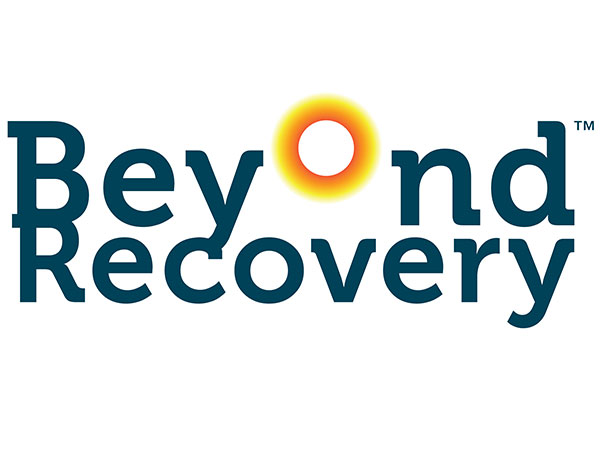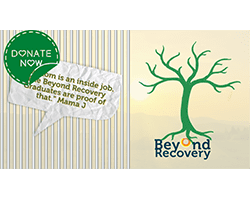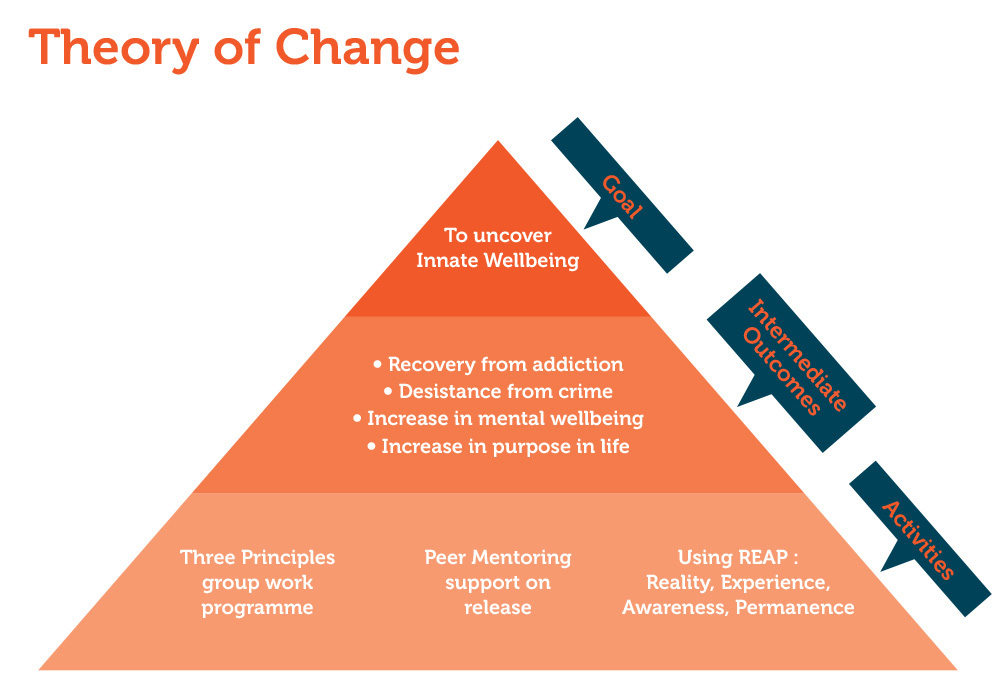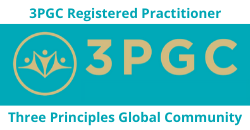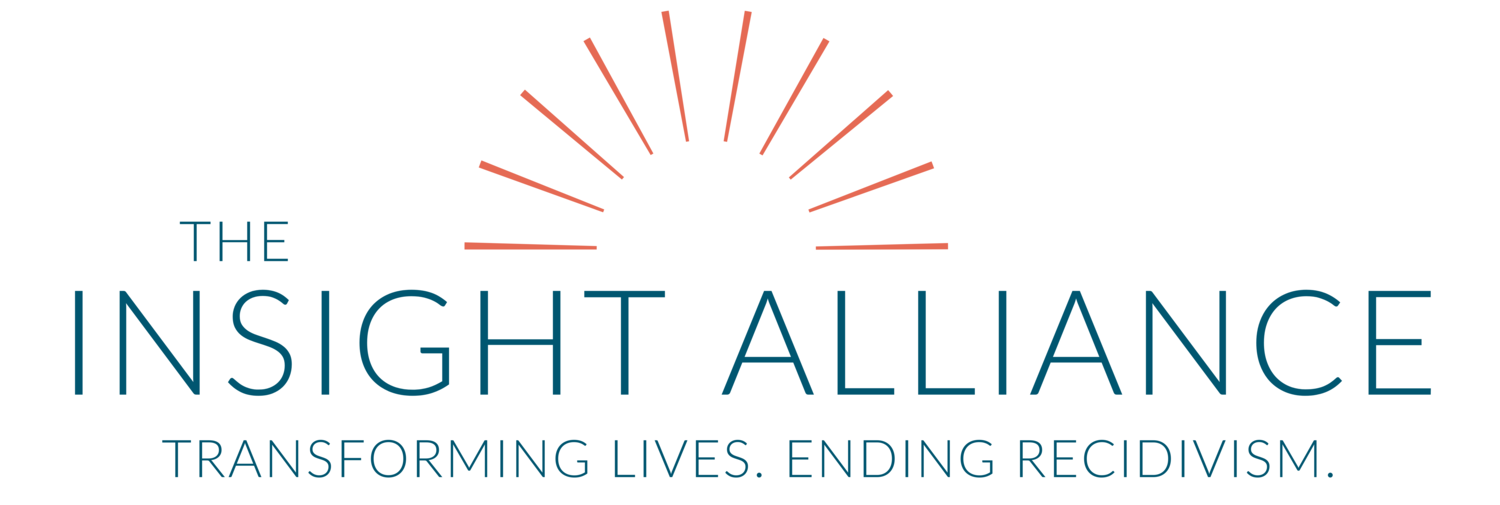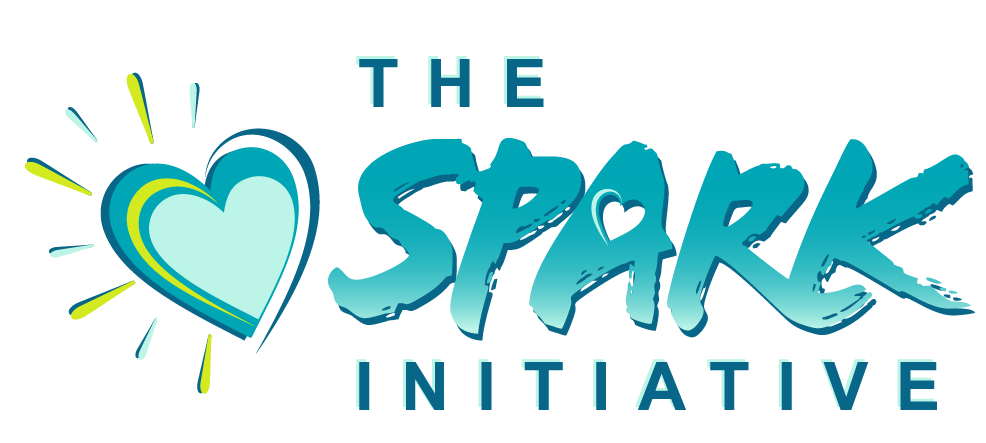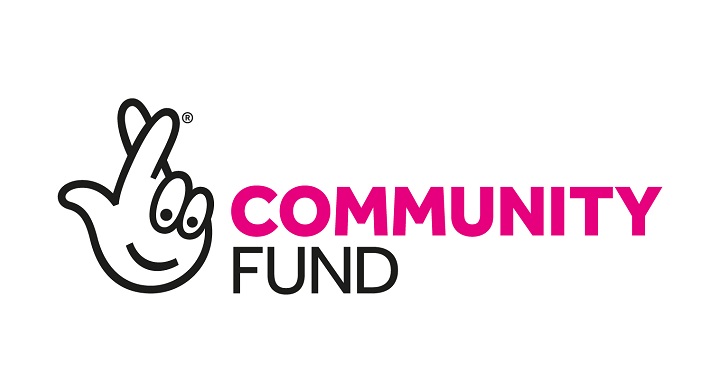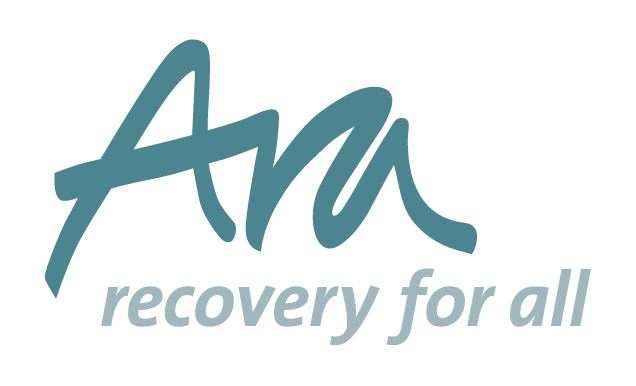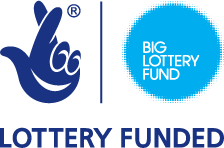OUR THEORY OF CHANGE
All our work at Beyond Recovery is evidence-based and we continuously evaluate the impact of our interventions.
Underpinning our work is our Theory of Change which we continuously review.
THE CHALLENGE
A very high proportion of prisoners have mental health problems (37%[1]), substance misuse problems (64% prisoners have used a Class A drug[2]) or both (monitoring data on 6500 prisoners in substance misuse treatment found they had an average of 3.4 mental health problems each[3]).
A recent report by the National Audit Office[4] made it clear that prison service is struggling to help these prisoners with these needs:
“The prison system is under considerable pressure, making it more difficult to address prisoners’ mental well-being and substance misuse problems. NOMS’ (the National Offender Management Service, replaced by Her Majesty’s Prison and Probation Service in April 2017)) funding reduced by 13% between 2009-10 and 2016-17, and staff numbers in public prisons reduced by 30% over the same period. When prisons are short-staffed, governors may run restricted regimes where prisoners spend more of the day in their cells, making it more challenging for prisoners to access helping services. Staffing pressures can make it difficult for prison officers to detect changes in a prisoner’s mental health and officers have not received regular training to understand mental health conditions, though the Ministry plans to provide more training in future.”
OUR MISSION
Beyond Recovery’s mission is to provide a cost-effective, evidence-based intervention which enables prisoners to uncover their innate mental well-being and consequently improve their mental health and behaviour in prison. This, in turn, enables them to have a stronger purpose in life and to live a more satisfying and law-abiding life on release.
The Three Principles approach used by Beyond Recovery is based on a very different paradigm from existing mental health and substance misuse recovery provision. This approach is characterised by two key factors which make it particularly appropriate to be delivered in custodial settings with restricted resources: progress can be rapid; and all individuals can benefit (even those with entrenched serious mental health problems such as personality disorders who are frequently excluded from other forms of current provision).
The final goal of Beyond Recovery’s Theory of Change is: “to uncover the innate wellbeing in the service users it works for and for this to be demonstrated by recovery from addiction and desistance from crime.”
We deliver a 10 session group work programme based on the Three Principles model to help beneficiaries to achieve a significant increase in mental wellbeing and a similar significant increase in their purpose in life.
By contrast, Three Principles practitioners are less concerned with helping an individual to change or cope with their feelings, but more interested in helping individuals to understand the nature of thought and the thought/feeling connection. Teaching that, since we all create our psychological reality from within ourselves, there is always the potential to create and experience new psychological realities.
Once an individual understands that painful memories are thoughts brought forward from the past, they can be taught to have a different relationship with these thoughts and let them simply pass through – they are then no longer under the control of powerful emotions that they associate with past events.
Three Principles practitioners focus on the existing psychological health within individuals and draw upon this rather than focus on psychological ill-health, that may need fixing. We teach psychological well-being, rather than helping individuals cope with mental illness.
ABOUT US
BEYOND RECOVERY
Founded in 2015, Beyond Recovery is a social enterprise whose mission is to revolutionise the way addiction and mental health are viewed and treated. Our timeline shows the key milestones in the Beyond Recovery journey so far.
JACQUELINE’S JOURNEY
Jacqueline talks about why she started Beyond Recovery; how everything gets created from nothing and how once we get out of our own way, we see we are always in the flow of life.
BENEFICIARIES’ STORIES
See the difference Beyond Recovery has made to a number of our beneficiaries. A series of case studies, with more testimonies in beneficiaries’ own words in preparation.
